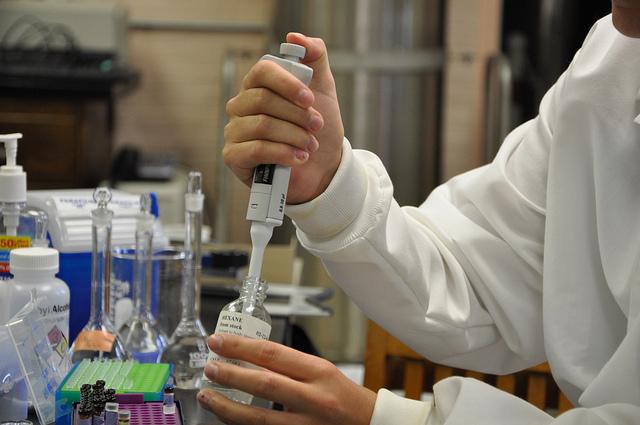A University of Wisconsin inspired spin-off has one UW alumnus seeking to expand the company’s operations by building a new facility in Janesville to make a medical isotope.
UW spin-off, SHINE Medical Technologies, is working on developing a particle accelerator that creates isotopes used to diagnose heart problems and cancer, SHINE founder Dr. Greg Piefer said.
Prior to his creation of the particle accelerator, medical isotopes used to diagnose heart problems and cancer were created using a nuclear reactor. The elimination of the nuclear reactor in the production of the isotopes is hopefully one of the first steps toward creating clean energy, Piefer said.
Piefer’s inspiration for the technology developed from his experience working in the UW fusion lab under UW professor emeritus of nuclear engineering Gerald Kulcinski.
Kulcinski’s emphasis on the importance of nuclear fusion and its long-term potential impacts garnered Piefer’s interest in understanding how it could be used to create useful products for humans.
The new facility will devote most of its resources to developing molybdenum-99, an isotope that decays into a product known as technetium-99, Kulcinski said.
Technetium-99 is an isotope that can then be used for diagnosing heart issues and cancer and is the most widely used radioisotope diagnosing these problems. Throughout the world, it is used in a diagnosis every second, Kulcinski said.
The new facility will break ground at the end of 2016 in Janesville. John Beckord, Forward Janesville president, said Janesville’s business friendly environment, close access to an airport and major metros like Chicago and Milwaukee, as well as special characteristics in the land all contributed to why Piefer chose the city.
The new facility will bring approximately 150 jobs to Janesville, Beckford said. Additionally, the facility will pay will help to diversify the city to various industries. The facility itself will not have a nuclear reactor, making it very safe, he said.
“There is no other significant manufacturer of these isotopes in the United States,” Beckord said. “[Moly-99] currently is imported and is a product that is important to human health.”
Directly across from the facility is an airport that will be used to ship the products throughout the United States. For global shipments, the isotopes will be trucked to the O’Hare International Airport in Chicago, Piefer said.
Because of how quickly the isotopes decay, it is important for the facility to be located near major hubs of transportation, so they can be shipped around the country and throughout the world, he said.
Fusion energy is a field that has lots of long term potential, Kulcinski said.
“I think that this is the kind of thing that we want graduates to be thinking about,” Kulcinski said. “How can they go out and help society? But it all starts in the basics and our job is to provide the skills and environment for new ideas.”
Piefer and his team expect the project to be on the market late 2019. Construction is expected to begin later this year.
Correction: Greg Piefer was incorrectly identified as a UW “aluma,” rather than “alumnus.” This article also incorrectly identified a “particle accelerator” as a “particle reactor.” The Badger Herald regrets the error.














